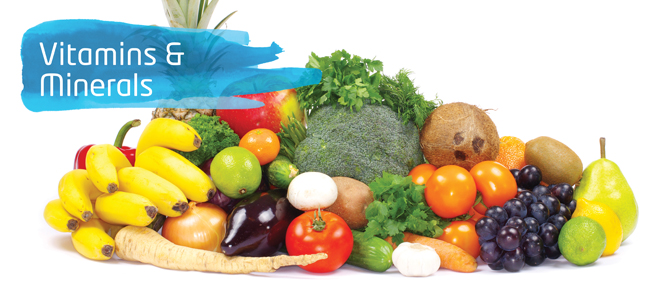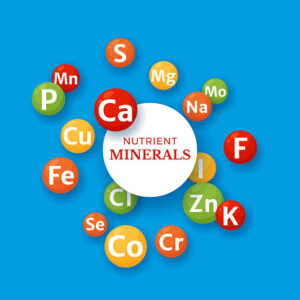A well-balanced and nutritious diet has several benefits. On the other side, a diet low in nutrients may create a variety of unpleasant symptoms. These symptoms are your body’s way of conveying probable vitamin and mineral shortages. Recognizing them can help you adapt your diet correctly. This article looks at the eight most typical vitamins and minerals deficiency symptoms and how to treat them.
- Blood in the Stool
Spotting blood in your bowel movements is nearly always a cause for concern. And this could be a symptom of excessive bleeding caused by vitamin K insufficiency. A trip to the doctor is warranted regardless of the apparent cause. Both vitamin K1 and K2 foods assist regular blood clotting, so it’s vital to obtain enough of these two vitamins.
Green leafy vegetables like collard and turnip greens, kale, spinach, broccoli, Brussels sprouts, cabbage, and lettuce are excellent sources of vitamin K1. And examples of vitamin K2 foods are natto, sauerkraut, pastured egg yolks, and certain cheeses. Many diverse factors can lead to vitamin deficiencies, but low consumption, poor absorption, underlying health issues, and drugs are common culprits.
- Cracked, Brittle, And Splitting Nails and Hair

- Causes of brittle hair and nails range from hormonal changes to chemical imbalances. An insufficient amount of biotin is one of them. Biotin, also called vitamin B7, plays a role in the process by which the body creates energy from the food it consumes. Hair and nails that are brittle, thin, or split due to a lack of biotin are some of the most apparent signs of a biotin deficiency.
Other symptoms of biotin deficiency include chronic weariness, muscle soreness, cramping, and tingling in the hands and feet. Pregnant women, heavy smokers or drinkers, and persons with digestive diseases. Crohn’s disease is at the most significant risk of having biotin deficiency. Prolonged use of antibiotics and other anti-seizure drugs is also a factor. Some research suggests that consuming raw egg whites can also lead to a lack of biotin in the body.
That’s because avidin, a protein found in raw egg whites, binds to biotin and can limit absorption. Bananas, yeast, liver, kidney, fish, meat, dairy, nuts, seeds, vegetables, brassicas, potatoes, grains, and whole-yeast bread and cereals are other good sources of biotin. It has been suggested that adults with brittle hair or nails take a supplement or a multivitamin tablet containing roughly 30 mcg of biotin daily. The benefits of biotin supplementation have only been seen in a small number of studies and case reports. So it may be advisable to get your biotin from food sources instead.
- Fractured or Swollen Corners of The Lips
Lack of specific vitamins or minerals may contribute to the development of mouth sores. Common vitamin and mineral shortages include iron and B vitamins, which can lead to symptoms like mouth ulcers (sometimes called canker sores). One tiny study finds that people with mouth ulcers appear twice as likely to have low iron levels. In a small study, two-eighths of people with mouth ulcers were deficient in vitamin B thiamine, riboflavin, and pyridoxine.
Excess salivation or dehydration can lead to angular cheilitis, a disorder characterized by dry, cracked, or bleeding mouth corners. A lack of iron and B vitamins, especially riboflavin, may also play a role in this. Acquiring the iron you need from foods like poultry, red meat, shellfish, beans, dark green vegetables, nuts, seeds, and whole grains is easy. Thiamin, riboflavin, and pyridoxine are all easily absorbed by the body. Therefore, whole grains, chicken, beef, fish, eggs, dairy, organ meats, legumes, green vegetables, starchy vegetables, nuts, and seeds are all great sources of these B vitamins.
- Sore, Bleedy Gums
Too much forceful tooth brushing or a lack of vitamin C in the diet can also lead to bleeding gums. Healing wounds, boosting the immune system, and protecting cells from free radical damage are just a few of vitamin C’s many functions. Vitamin C is an essential nutrient, but it is not one the body produces on its own.

You won’t have a vitamin C deficiency if you eat plenty of fresh fruits and vegetables. Many people, however, still need their recommended daily allowance of fruits and vegetables. It could help explain why 13 and 30 percent of the population have low vitamin C levels, with 5 to 17 percent being deficient, according to studies that conduct routine testing of healthy people. Severe vitamin C deficiency, manifested by symptoms such as bleeding gums and tooth loss, can result from inadequate dietary intake over extended periods.
Scurvy, brought on by an extreme lack of vitamin C, suppresses the immune system, weakens muscles and bones, and leaves victims feeling exhausted and listless. The inability to stop nosebleeds, easy bruising, delayed wound healing, dry, scaly skin, and recurrent bleeds are all symptoms of a vitamin C deficiency. Get in at least two servings of fruit and three to four servings of veggies daily to meet your daily vitamin C needs.
- Harmful Eye Growths and Impaired Night Vision
Vision issues are one of the many symptoms of a nutrient-poor diet. Night blindness, in which people have trouble seeing in dim light or complete darkness, has been linked to vitamin A deficiency. The pigment rhodopsin, present in the eyes’ retinas, is responsible for night vision, and vitamin A is required for its production. If neglected, night blindness can develop into xerophthalmia, which can cause permanent damage to the cornea and ultimately result in total blindness.
Bitot’s spots are slightly elevated, foamy, white growths that appear on the conjunctiva or the whites of the eyes and are another early indication of xerophthalmia. Even if the vitamin A deficit is corrected, the changes will return in some form. Deficiencies in vitamin A are uncommon in developed nations. Consuming more organ meats, dairy, eggs, fish, dark leafy greens, and yellow-orange-colored vegetables may help those who worry they aren’t getting enough vitamin A in their diet.
Supplemental vitamin A is not recommended unless a doctor has determined that you have a deficit. Toxic vitamin A levels can be reached when the body’s fat stores grow swollen from an excessive intake of this fat-soluble vitamin. Nausea, headaches, skin irritation, joint and bone discomfort, and, in extreme situations, coma or death, are all symptoms of vitamin A toxicity.
- Dandruff and Dry, Flaky Spots
Both dandruff and seborrheic dermatitis (SB) are symptoms of an underlying problem with your skin’s oil glands. Both conditions cause itchy, flaky skin. Unlike seborrheic dermatitis, typically confined to the scalp, dandruff can manifest on the face, upper chest, armpits, and groin.
These skin conditions most commonly appear in the first three months of life, during adolescence, and in the middle years. Both disorders are pervasive, according to studies. Research shows that half of all adults and 42% of new borns may suffer from dandruff or seborrheic dermatitis. A nutrient-poor diet is just one of many potential causes of dandruff and seborrheic dermatitis. Deficiencies in zinc, niacin (B3), riboflavin (B2), and pyridoxine (B6), among others, have been linked to this condition.
The connection between a nutrient-poor diet, dandruff, and seborrheic dermatitis is poorly understood. However, people who suffer from these disorders may benefit from increasing their intake of certain nutrients. To get your fill of niacin, riboflavin, and pyridoxine, stock up on whole grains, lean meats, fish, eggs, dairy, organ meats, legumes, leafy greens, starchy vegetables, nuts, seeds, and fruit and nut butter.
- Hair loss
Among these symptoms, hair loss is among the most prevalent. In fact, by the time a person reaches the age of 50, half of all individuals have experienced some form of hair loss. The following nutrients may help stop or at least slow down hair loss.
- Iron: The DNA in hair follicles, like all DNA, requires this mineral to synthesize correctly. A lack of iron can halt hair growth and cause it to fall out.
- Zinc: Hair growth depends on protein synthesis and cell division, which this mineral facilitates. Therefore, hair loss may be an effect of zinc deficiency.
- LA and ALA are two essential fatty acids (ALA): Getting enough of these fatty acids is crucial for healthy hair growth.
- Niacin (vitamin B3): This vitamin is vital for keeping hair healthy. A lack of niacin can likely cause alopecia, a disorder characterized by localized hair loss.
- Biotin (vitamin B7): Biotin is another B vitamin that, when inadequate, may be linked to hair loss.
Iron and zinc can be found in high concentrations in foods, including meat, fish, eggs, legumes, dark leafy greens, nuts, seeds, and whole grains. Foods high in niacin include lean meats, seafood, dairy products, whole grains, legumes, nuts, seeds, and dark green vegetables. These foods share the high concentration of biotin seen in egg yolks and organ meat with those foods.
LA is found in walnuts, flaxseeds, chia seeds, and soy nuts, while ALA is found in leafy vegetables, nuts, whole grains, and vegetable oils. There are a lot of hair-loss supplements out there, all of which claim to be effective. Some contain all the nutrients listed above, while others have a different set. People with confirmed deficiencies in the above nutrients may benefit from these dietary supplements. Because they promote hair growth and minimize hair loss.
However, there is scant evidence of the advantages of such supplements in the absence of a deficiency. Vitamin and mineral supplements in the lack of a defect may worsen hair loss. Examples of nutrients commonly included in hair development supplements associated with hair loss include selenium and vitamin A. Unless your doctor has diagnosed you with a deficit, you should get these nutrients via food rather than pills.
- Acne, Often Known as Pimples, Can Be Either Red or White
Keratosis pilaris is a skin disorder that manifests as gooseflesh-like pimples everywhere on the body most commonly on the face, arms, legs, and buttocks. Corkscrews or ingrown hairs can sometimes accompany these little lumps. The ailment typically manifests in young children and goes away as they mature into adults. The exact reason for the appearance of these bumps is unknown. However, it may have something to do with an excess of keratin production in the hair follicles. It causes raised pimples of red or white skin to appear.
A family history of keratosis pilaris may increase your risk of developing the condition. However, it has also been observed in those whose diets consistently lack sufficient vitamins A and C. Therefore, in addition to the conventional treatment of medicated lotions. Those with this ailment may want to explore including vitamin A- and vitamin C-rich foods in their diet. Foods high in these nutrients include organic meats, dairy, eggs, seafood, dark leafy greens, yellow/orange vegetables, and fruit.
- Restless Legs Syndrome
The neurological disorder known as restless leg syndrome (RLS), sometimes called Willis-Ekbom illness, manifests itself in an irrepressible compulsion to move the affected limbs.
Reducing Restless Leg Syndrome (RLS) symptoms is facilitated by iron supplementation, especially in those with a documented iron deficit. There may be individual differences in how supplements perform. Increasing your consumption of iron-rich foods, including meat, chicken, fish, legumes, dark leafy greens, nuts, seeds, and whole grains, may also help alleviate symptoms. Combining these iron-rich foods with vitamin C-rich fruits and vegetables may be very useful.
Iron absorption can be improved by cooking using cast-iron cookware and not drinking tea or coffee with meals. However, it’s important to remember that taking supplements, unless necessary, can harm other nutrients’ absorption. Extremely high iron levels can even be lethal in some situations. So it’s advisable to consult your healthcare provider before taking dietary supplements. Lastly, magnesium deficiency has been linked to restless leg syndrome.
Conclusion
Some signs and symptoms of a deficiency in vitamins and minerals are more prevalent than others. Symptoms are often eliminated or considerably diminished when a person eats more meals with the necessary vitamins and minerals.Source : https://www.nhvita.com/blog/signs-of-vitamin-deficiency-and-treat-it-with-the-help-of-supplements/








